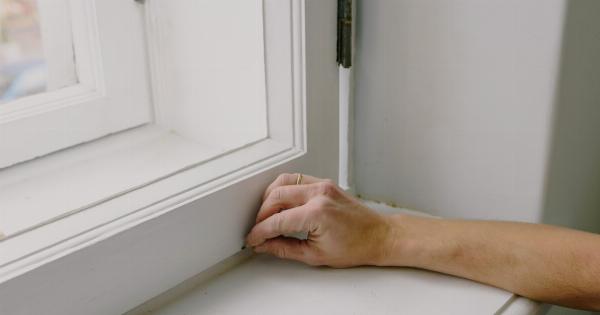Are you tired of lying awake in bed, counting sheep in a desperate attempt to fall asleep? If so, you’re not alone. Insomnia affects millions of people worldwide, leaving them tired, irritable, and longing for a good night’s sleep.
But it’s time to break the cycle and find alternative strategies to help you drift off into dreamland. In this article, we will explore effective techniques to improve your sleep and bid farewell to counting sheep forever.
Understanding the Trouble with Sheep
Counting sheep has long been hailed as a solution for inducing sleep. The idea behind it is that visualizing a monotonous task, like counting sheep jumping over a fence, can help calm the mind and lull you into slumber.
However, for many, this technique proves ineffective or even counterproductive. Instead of letting your mind relax, you may find yourself getting more frustrated and restless with each sheep you envision.
So, why does counting sheep fail for some people? The answer lies in the power of the mind and the need for a personalized approach when it comes to sleep.
While counting sheep may work wonders for one individual, it may have no effect or even exacerbate insomnia in another. It’s essential to find strategies that genuinely resonate with you and your specific sleep patterns.
Letting Go of Sheep: Alternative Sleeping Techniques
If counting sheep has brought you no luck, don’t worry. There are plenty of alternative techniques you can try to improve your sleep. Here are some strategies that have proven to be effective for many individuals:.
1. Progressive Muscle Relaxation (PMR)
Progressive Muscle Relaxation is a technique that involves tensing and then relaxing different muscle groups in your body. It helps release physical tension and promotes a state of relaxation, making it easier for you to fall asleep.
With regular practice, PMR can also train your body to recognize the sensations of relaxation and automatically associate them with sleep.
2. Deep Breathing Exercises
Deep breathing exercises are a simple yet powerful way to calm your mind and prepare your body for sleep. By focusing on your breath and taking slow, deep inhalations and exhalations, you activate your body’s natural relaxation response.
Deep breathing also helps redirect your attention away from racing thoughts and into the present moment, creating a sense of tranquility conducive to sleep.
3. Guided Imagery
Guided imagery involves visualizing soothing and peaceful scenes or scenarios to help redirect your mind away from intrusive thoughts or worries.
Whether it’s picturing yourself on a serene beach or imagining yourself floating on a cloud, guided imagery can transport your mind to a more tranquil state, facilitating a natural transition into sleep.
4. White Noise and Relaxing Sounds
Noise disturbances can significantly impact your ability to fall asleep and stay asleep throughout the night.
However, introducing a steady background noise, like white noise or calming ambient sounds, can drown out disruptive sounds and promote a quiet, sleep-friendly environment. Experiment with different sounds until you find the one that puts you at ease and helps you drift off peacefully.
5. Establish a Bedtime Routine
Inconsistent sleep schedules and erratic bedtime routines can wreak havoc on your sleep. Establishing a consistent bedtime routine can signal to your body that it’s time to unwind and prepare for sleep.
Develop a routine that incorporates relaxing activities, such as reading a book or taking a warm bath, along with creating a comfortable sleep environment. Stick to this routine as closely as possible each night to train your body to recognize it as a prelude to sleep.
6. Limit Electronics and Stimulating Activities Before Bed
Electronic devices emit blue light, which can interfere with your body’s production of melatonin, a hormone that regulates sleep.
To improve the quality of your sleep, consider establishing a digital curfew and avoid using electronics at least one hour before bed. Engaging in stimulating activities, such as intense exercise or engaging movies, can also disrupt your sleep, so try to wind down with more relaxing pursuits instead.
7. Create a Sleep-Friendly Environment
Your sleep environment plays a crucial role in the quality of your sleep. Optimize your bedroom for a restful night by keeping it cool, dark, and quiet.
Use blackout curtains to block out external light, invest in earplugs or a white noise machine to cancel out noise disturbances, and ensure that your mattress and pillows provide the necessary support and comfort for your body. Creating a sleep-friendly environment sets the stage for a sound slumber.
8. Cognitive Behavioral Therapy for Insomnia (CBT-I)
If your struggles with sleep persist despite trying various techniques, consider seeking professional help.
Cognitive Behavioral Therapy for Insomnia (CBT-I) is a highly effective treatment that targets the underlying thoughts, behaviors, and emotions that contribute to sleep difficulties. A qualified therapist can work with you to identify and address the root causes of your insomnia, providing you with tailored strategies and tools to promote healthy sleep habits.
9. Herbal Remedies and Supplements
While not a substitute for addressing the fundamental causes of insomnia, certain herbal remedies and supplements may offer temporary relief from sleepless nights.
Chamomile tea, valerian root, lavender essential oil, and melatonin supplements are among the most commonly used natural sleep aids. However, it’s crucial to consult with a healthcare professional before introducing any new substances into your routine, especially if you’re taking medication or have pre-existing health conditions.
10. Prioritize Stress Management
Stress and sleep problems often go hand in hand. Unmanaged stress can make it challenging to relax and can lead to racing thoughts and anxiety at bedtime.
Incorporating stress management techniques into your daily routine can help alleviate these symptoms and improve your sleep. Whether it’s through mindfulness meditation, yoga, journaling, or engaging in hobbies you enjoy, finding healthy ways to cope with stress can significantly enhance your sleep quality.
Prepare for a Peaceful Night’s Sleep
Instead of futilely counting sheep, embrace alternative sleeping techniques to reclaim restful nights. Experiment with various strategies and find the combination that works best for you.
Remember, there’s no one-size-fits-all solution when it comes to sleep, so be patient and consistent in your efforts to improve your sleep hygiene. Say goodbye to sleepless nights and hello to blissful slumber – tonight, and every night.


























